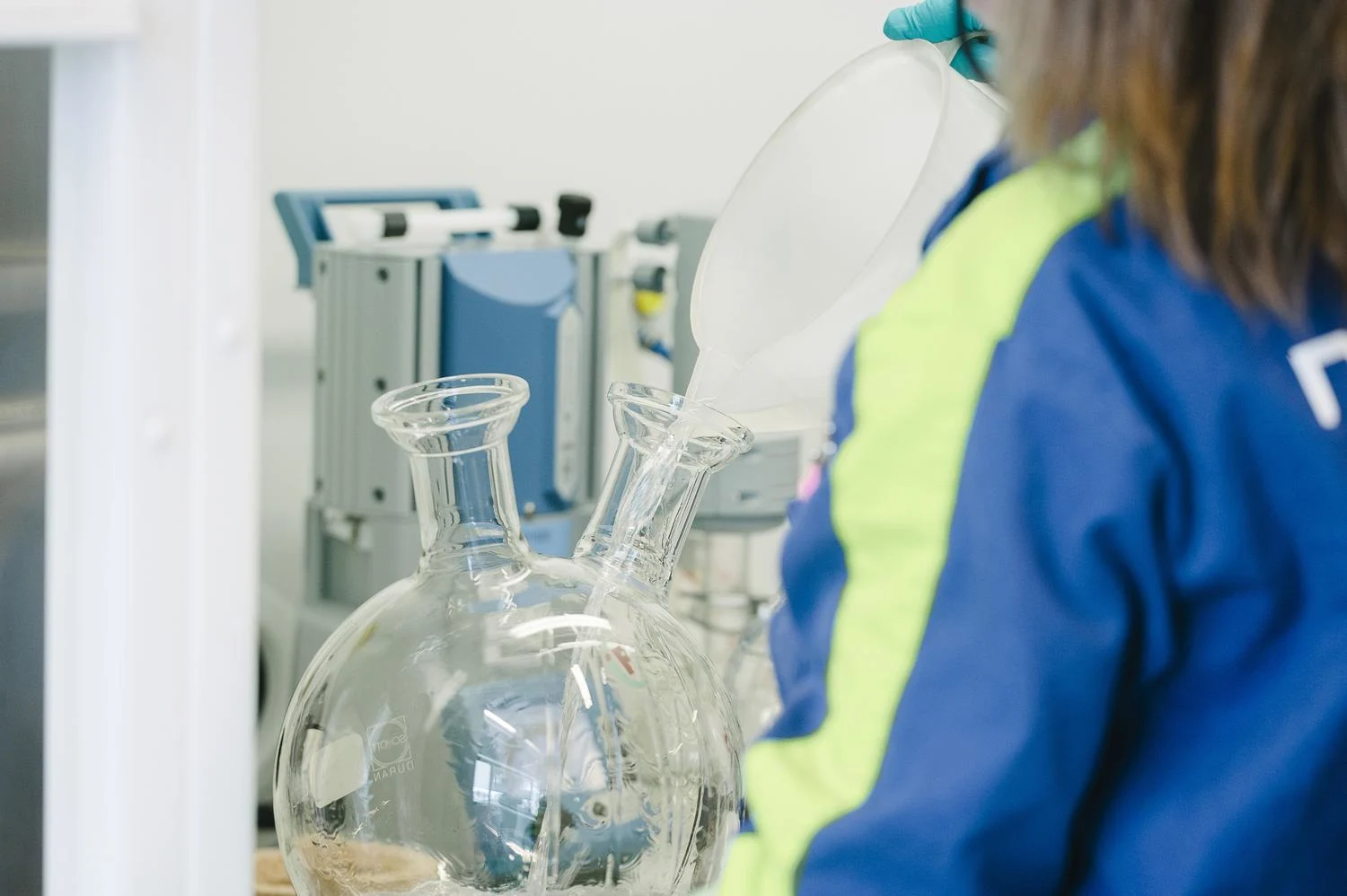
Innovation
3 minute read
Product quality is a 24/7 commitment
Neste’s quality labs never sleep. They carry out hundreds of analyses every day, around the clock, to ensure that each product batch performs exactly as promised.
Neste’s culture of quality reflects the company’s role as an industry forerunner. With raw material development moving fast, Neste takes a proactive stance in anticipating risks and ensuring products perform as intended.
“We have an obligation and responsibility to make sure that when we introduce new raw materials and new types of products, they actually perform as promised to our customers,” says Teemu Sarjovaara, Head of Product Management at Neste.
We have an obligation and responsibility to make sure that when we introduce new raw materials and new types of products, they actually perform as promised to our customers.
This approach is how Neste ensures that its products consistently meet standards and expectations.
From idea to approval: Testing new raw materials
Neste refines waste, residues and other renewable raw materials to high-quality renewable fuels. The company has an extensive raw material portfolio and global sourcing capabilities, and is actively exploring new raw materials and developing technologies to diversify its raw material portfolio further.
Ensuring the suitability of these raw materials for use in Neste’s refining processes is the first step in the quality chain. “The first phase of raw material analysis is more proactive and research-based. When we get a new raw material supplier or some new raw material, we have very strict approval processes, during which we analyze those materials extensively before committing to them,” Sarjovaara describes.
For familiar raw materials from new suppliers, Neste checks impurities and compatibility with existing refinery processes. For entirely new raw materials, the process is more extensive. Testing can include, for example, real-world field trials with vehicles using a fuel produced with the raw material before being approved for commercial use.
“If the raw material is of a new type, the standard research method doesn’t necessarily apply, and we need new methods for analysis. So, sometimes we develop new methods in-house to be used in our everyday operational quality control,” Sarjovaara says.
Every batch checked, every product validated
Once a new raw material is accepted for Neste’s use, the operational phase begins. Every single raw material shipment undergoes an analysis before entering the production process – even when suppliers have provided certificates.
“One reason for double checking is to ensure that nothing would negatively affect the quality of our end product. Another is that we don’t want to risk any imperfections damaging our process,” Sarjovaara says.
The same principle applies at the other end of the chain: every batch of renewable fuel Neste supplies to the market must meet strict specifications. Sarjovaara says that depending on the product, 20–30 different analyses are performed to ensure compliance with international fuel standards and customer-specific requirements. Customers receive the analysis data as proof that the product is exactly what it is claimed to be.
The science of quality: Advanced lab technologies
Neste’s global R&D expertise at its innovation centers and laboratories combines state-of-the-art instruments with continuous in-house method development.
“We have top researchers developing methods to address the specific questions related to raw materials. Raw materials originating from waste and residue streams are often technically very challenging to process, and this is one of Neste’s competitive advantages – our strong capabilities in pretreatment and incorporating them into production,” Sarjovaara emphasizes.
Raw materials originating from waste and residue streams are often technically very challenging to process, and this is one of Neste’s competitive advantages – our strong capabilities in pretreatment and incorporating them into production.
Standard technologies and proprietary methods developed by Neste’s researchers allow for detailed analysis of impurities, trace elements, and performance-critical properties. Neste operates its own laboratories and also partners with external labs. To ensure accuracy of results, the company applies strict auditing, round-robin testing (sending identical samples to multiple labs for comparison), and onsite visits to major external laboratories.
“We have our own process and organization to verify the quality of the laboratories. We regularly audit the external laboratories that work for us, and have very strict criteria,” Sarjovaara concludes.




